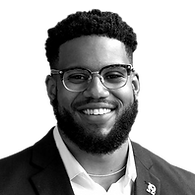
Our Board

Outreach
Cindy has been involved the oil and gas industry since 1982 and worked in the project management services division in Exxon for 15 years. After obtaining a Master of Science in Environmental Engineering, she began work at the EPA enforcing the Clean Air Act. In 2014 she was selected for a detail position as the EPA Region 8 Energy Advisor in the Office of the Regional Administrator. She then returned to her position of record to focus on air emissions from oil and gas with a focus in the Uinta Basin in 2018. After retiring, she began volunteering for the Colorado Agrivoltaic Learning Center to conduct tours at Jack's Solar Garden and now currently serves as the Board Chair.

Education
Emily recently launched Radicle Futures - a learning and leadership design organization that engages innovative teachers, leaders, foundations, nonprofits and government agencies to foster community, planetary health, and holistic learning; helping young people live integrated lives within the world that sustains them. She has spent 25 years in and around the K-12 education space facilitating strategy, problem solving and leadership development sessions for over 50+ school districts/independent schools, ed-tech firms, non-profit organizations, foundations and government agencies seeking to improve the quality of learning for students and adults. Recently, Emily has supported organizational efforts to educate and advocate for healthy soil and regenerative food production as a path to both better human and planetary health outcomes. She has a permaculture design certificate and lives in New Zealand with her family, researching how the natural world can better inform the design of our human systems.

Education
Greg is an Associate Professor and the Associate Director of the Community and School Garden Program at the University of Arizona. Greg and his students study how plants and ecosystems respond to threats from drought, climate change, and human pressures like over grazing or clearing for renewable energy production. For the past decade, Greg's team have directed this science to build the field of 'agrivoltaics' in the USA. Greg began in southern Arizona, studying the benefits across the food-energy-water nexus, and over the years his team have developed a national and international program connecting with researchers in Colorado and Oregon and in Africa and the Middle East. Helping develop science-based solutions to help people adapt to the increasing pressures that come from a changing climate is a personal and professional goal of Greg's.

Policy
Elise Jones is the Executive Director of the Southwest Energy Efficiency Project (SWEEP) a Boulder based nonprofit that promotes policies and programs to advance energy efficiency and clean transportation in a six-state region. She is also an acting member of the Colorado Air Quality Control Commission. Before joining SWEEP in January 2021, Elise served as a Boulder County Commissioner for eight years. Prior to running for public office, Elise was the Executive Director of the Colorado Environmental Coalition (now called Conservation Colorado), which advocates for stronger climate, energy, wilderness, land use, transportation and other environmental policies. Elise holds a bachelor’s degree in Natural Resources from Cornell University in New York and a master’s in Resource Policy, Planning and Administration from the University of Michigan. Elise lives in Boulder with her partner, Karl, and their daughter, McKenzie, where she likes to spend time trail running, mountain biking and telemark skiing.

Policy
Jordan Macknick is the Lead Energy-Water-Land Analyst for the National Renewable Energy Laboratory. He is a member of the Strategic Energy Analysis Center’s Systems Modeling team within the Resources and Sustainability Group. Jordan’s primary work addresses the environmental impacts of energy technologies, while seeking opportunities for energy and ecological synergies. In his energy-water-land leadership capacity, Jordan analyzes national and regional implications of different energy pathways in the context of water and land resources, evaluates opportunities to improve the energy management of water infrastructure, and explores innovative approaches to co-locating solar and agricultural activities. Jordan received his BA in Mathematics and Environmental Studies from Hamline University in 2005, and his Master of Environmental Science degree in Transboundary Natural Resource Policy from Yale in 2009. Jordan’s areas of expertise include systems modeling of energy and water infrastructure interactions, renewable-powered water treatment systems, meta-analysis of diverse data sets, and low-impact renewable energy development.

Land Use Planning
Nicole leads planning, design, implementation and evaluation of initiatives that support the transition to a decarbonized energy future. Her current work emphasizes the role of utility and community partnerships to accelerate the pace of change and the adoption of foundational elements needed to drive this transition, recognizing the pivotal role community planning and stakeholder collaboration will play in successful decarbonization pathways. She is an AICP planner with over 20 years of experience in environmental policy, planning and markets, with areas of focus including land use, energy efficiency and renewable energy.
_edited_edited.png)
Solar Industry
Miles Braxton is a Doodle Dad, cleantech innovator, and equity champion who has spent the last 6 years wearing various hats in commercial solar development and asset management.
Miles started his career on a chicken farm, converting chicken manure into electricity through anaerobic digestion, then quickly shifted his focus to solar. After various roles in the industry and observing increasing pressures of climate change and resource scarcity in the agricultural space, Miles co-founded Okovate Sustainable Energy, which develops community solar atop active farmland, ensuring profitable and sustainable farming for crop farmers through the power of agrivoltaics.
In 2020, Miles co-founded BlackOak Collective, a non-profit providing environmental career resources to a network of over 400 Black students, professionals, and advocates in the sustainability space.
Miles graduated from the University of Virginia with a B.S. in Environmental Science as a Rodman Scholar, minoring in Engineering Business. He holds a certificate in Financing and Deploying Clean Energy from the Yale Center of Business and Environment (CBEY). In addition to CALC’s board position, he sits on the Ridley Scholarship Board at UVA and BullPower EV’s board.

%20(1).png)